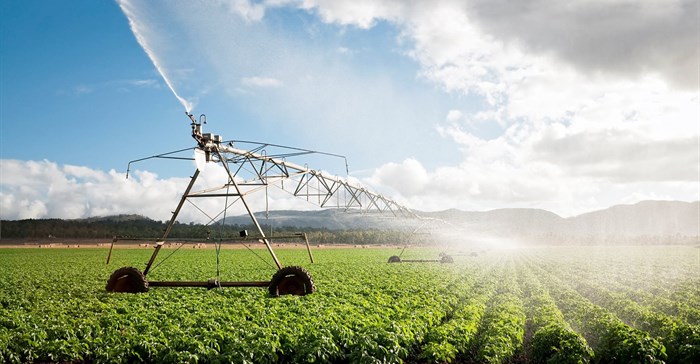South African agricultural hubs within the Northern and Eastern Cape have seen a number of small town's threatened by water supply failures, resulting in livestock and crop farmers facing financial ruin. In other parts of the country, severe heatwaves and the late-onset of rain has caused agricultural supply to collapse while demand for these products only carries on growing in demand.
Agri SA has said the drought has affected more than 37% of SA’s rural communities with substantial negative effects on agricultural production.
South African farmers are currently faced with the seemingly impossible challenge of coming up with solutions on how to effectively manage the little water they have available; this means that every drop of water needs to be perfectly calculated and used in order for farmers to ensure that they produce successful yields now and in the future.
Managing irrigation
With this in mind, irrigation plans are what farmers use to manage the efficient irrigation of their fields.
A farmer’s visual inspection is, of course, something that will never lose its value in a farming operation. The problem is, however, that when a farmer sees a
dead zone of 30% or more, they start to feel despondent about how to deal with those particular pieces of land.
Farmers will typically then irrigate their crops according to the majority crop growth stage across the entire field. In a bid to simplify things, they furthermore are forced to focus on one type of crop, because the process of calculating manual plans for different kinds of crops can be tedious and very time-consuming.
Decisions like this negatively affect the biodiversity of the soil. In the midst of the ongoing water crisis, farmers are also faced with coming up with strategic plans to use water sparingly on top of producing sensible irrigation plans.
Automated irrigation technology, like that from FieldNet Advisors, for example, minimises the complicated process of working out irrigation plans by hand. Technology such as these are able to effectively use the amount of water available on farms as optimally as possible. Research [please provide a link to this research] has shown that automated irrigation can lead to a 25% saving in water consumption.
In a bid to come up with a workable solution to this problem, John Deere and Lindsay Africa signed a Memorandum of Understanding (MoU) aimed at ensuring that farmers have better control over their irrigation operations using state-of-the-art technology, with water usage and distribution as paramount factors in mind.
According to Chrisjan Jansen van Vuuren Sales Coordinator at FieldNet Africa: "Farmers can save water and maximise yield by making use of automated irrigation technology. When using technologies like these, farmer plans can be generated and sent to the irrigation technology installed on the pivot every day. When the farmer decides to start his pivot, he can rest assured that the right amount of water gets applied to the soil."
In a country like South Africa, where farmers are not subsidised by the government, automated irrigation technology is key to ensuring that they are running their farms profitably. With the use of reliable implements, like John Deere products, and technology by Lindsay Africa, for example, farmers can raise their productivity while cutting costs, saving time and managing resources optimally.

































